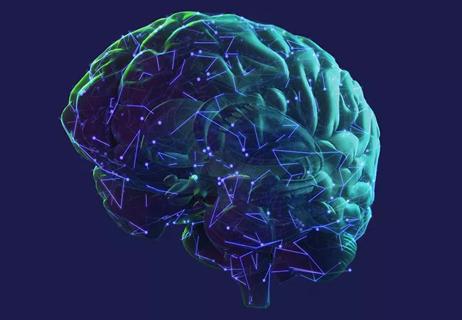Self-administered tool can be completed in 10 minutes in waiting room

The Cleveland Clinic Cognitive Battery (C3B) — consisting of self-administered digital modules of visual memory and processing speed tests — effectively discriminates between healthy aging and cognitive dysfunction, reports a team of Cleveland Clinic investigators. The battery, which can be completed independently by patients in a primary care clinic and is automatically scored, offers a new rapid screening tool for mild cognitive impairment (MCI) and early Alzheimer’s disease (AD).
Advertisement
Cleveland Clinic is a non-profit academic medical center. Advertising on our site helps support our mission. We do not endorse non-Cleveland Clinic products or services. Policy
“The C3B is a low-cost alternative to clinician-administered cognitive testing that can be readily integrated into primary care clinical practice,” says Stephen Rao, PhD, lead author of a series of studies of the C3B from validation to initial implementation, as described in the Journal of Alzheimer’s Disease. “As a screening test for older adults, it can facilitate detection of cognitive dysfunction earlier in its course so that preventive and therapeutic interventions can be started when they are more likely to be effective.”
Dr. Rao is Director of the Schey Center for Cognitive Neuroimaging at Cleveland Clinic and staff in the Lou Ruvo Center for Brain Health, Cleveland.
Experts increasingly recognize that the brain changes associated with AD typically start many years before the disease is diagnosed. Interventions to reduce risk factors — including lifestyle changes and specific therapies as they become available — are likelier to prevent or delay onset of dementia if implemented early. But most patients do not seek care until symptoms of cognitive impairment are noticeable, when interventions are less likely to help. Current early cognitive tests are impractical as general screening tools, as they are administered by a professional and take significant time to complete.
In 2014, the National Institute on Aging recommended integrating cognitive screening tools into primary care clinical practice with minimal disruption to workflow in order to facilitate detection of MCI and early AD in asymptomatic older adults. In response, the Cleveland Clinic team developed the C3B, a self-administered instrument comprising a visual memory test (for episodic memory) and a processing speed test (for information processing and attention maintenance). The battery is taken on an iPad and can be completed and scored within 10 minutes.
Advertisement
As detailed in the Journal of Alzheimer’s Disease report, the team conducted a series of investigations designed to validate the C3B and assess its reliability in real-world settings:
Advertisement
“Our results indicate that the C3B can be an excellent general screening tool for early cognitive dysfunction in patients 65 and older,” Dr. Rao observes. “Importantly, it can be incorporated inexpensively into the regular workflow in a primary care clinic.”
Dr. Rao emphasizes that the C3B does not depend on reports about cognitive function from patients or family members, which often are unreliable indicators of MCI or early AD. Instead, the C3B directly tests cognitive function in a manner that demonstrates high discrimination between healthy aging and cognitive dysfunction.
His team is currently preparing for a large multisite study to better define test result thresholds for cognitive dysfunction and to assess the tool in a broader population. Patients — both those who score well and those who score poorly on the C3B — will be randomly selected to undergo MRI scanning, laboratory tests, extensive cognitive testing and a neurological examination to determine whether they are cognitively healthy or have MCI/AD or some other form of dementia.
Dr. Rao notes that the C3B will soon be incorporated into the primary care waiting room at Cleveland Clinic Hillcrest Hospital, which has advanced imaging capabilities for the validation studies. “Because our current evidence is strong, we will start using the C3B for clinical screening purposes and not only for research,” he adds. “Patients with test results suggesting cognitive dysfunction deserve to be offered further workup promptly.”
Disclosure: Dr. Rao reports that he has co-authored intellectual property around the C3B software for which he has received royalties from Cleveland Clinic.
Advertisement
Advertisement

Initial results show good accuracy of scalable, low-cost tool for flagging cognitive decline

Cleveland Clinic Cognitive Battery identifies at-risk patients during Medicare annual visits

Structured data helps identify older adults at risk for poor outcomes, defines patients who require more comprehensive assessments

Large NIH-funded investigation is exploring this understudied phenomenon

Machine learning study associates discrete neuropsychological testing profiles with neurodegeneration

Study suggests inconsistencies in the emergency department evaluation of geriatric patients

Early screening — and shorter boarding times — benefit older adults

Also will assess ability of high-intensity exercise to offset the cognitive decline